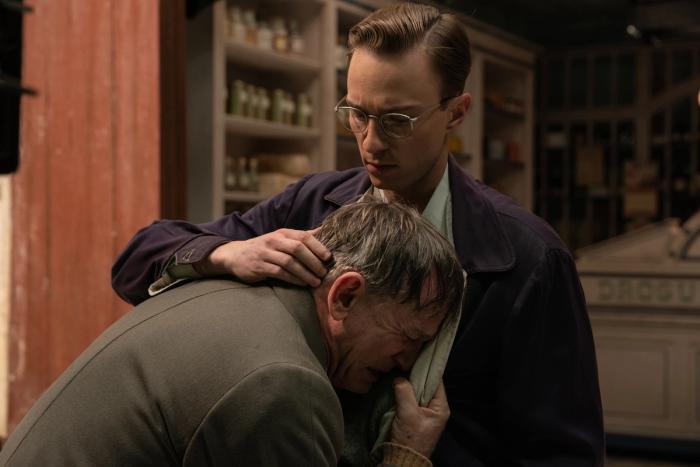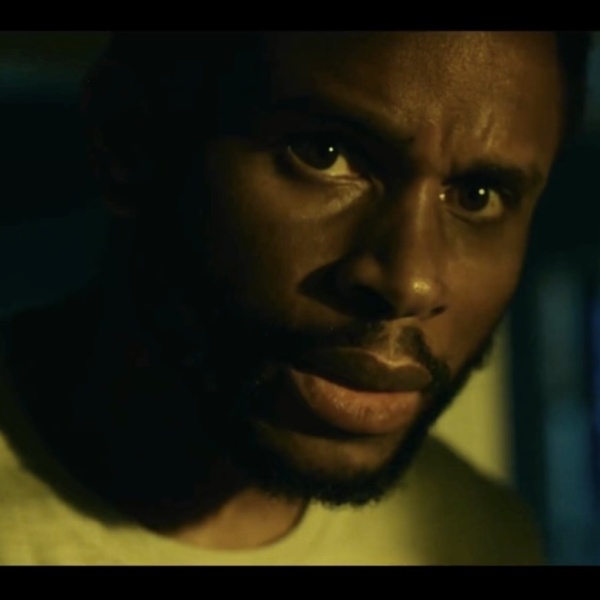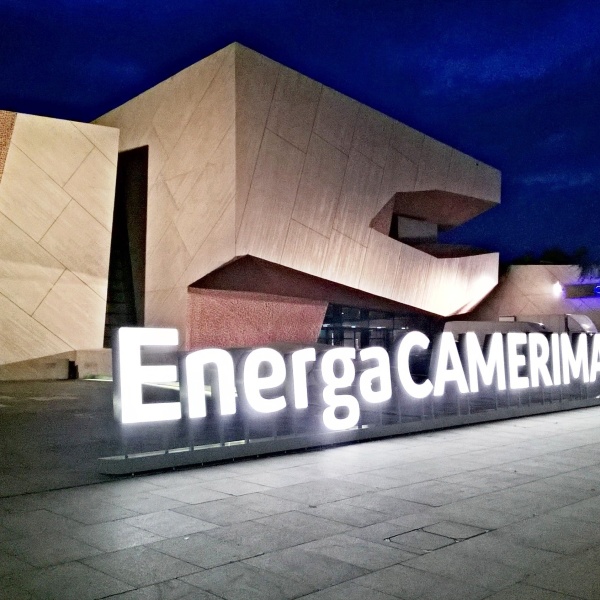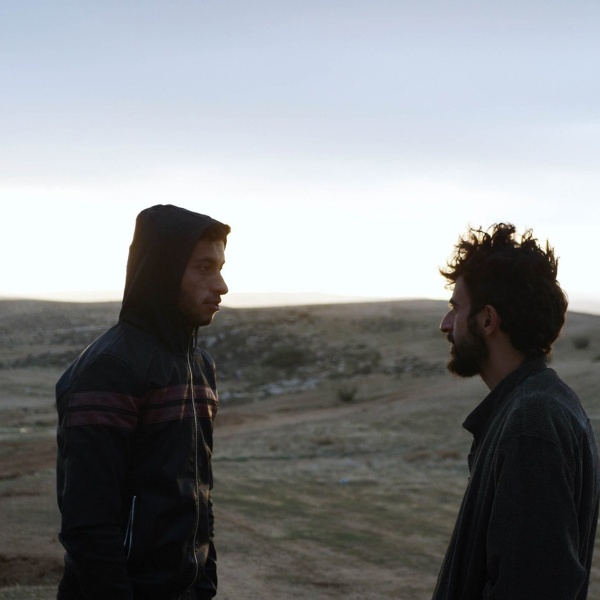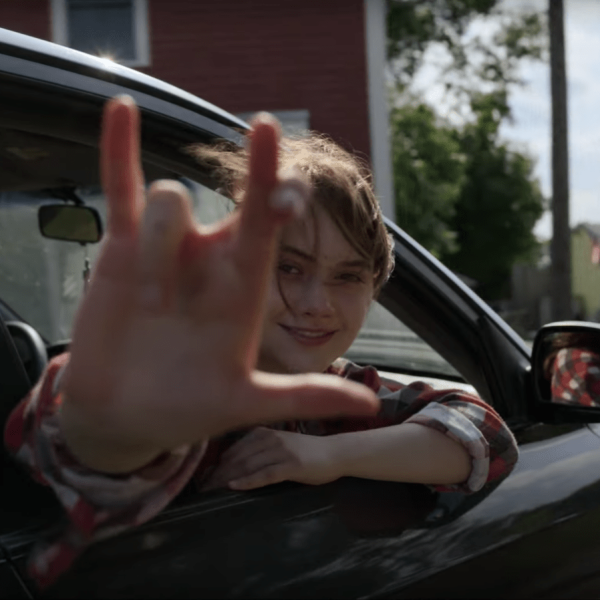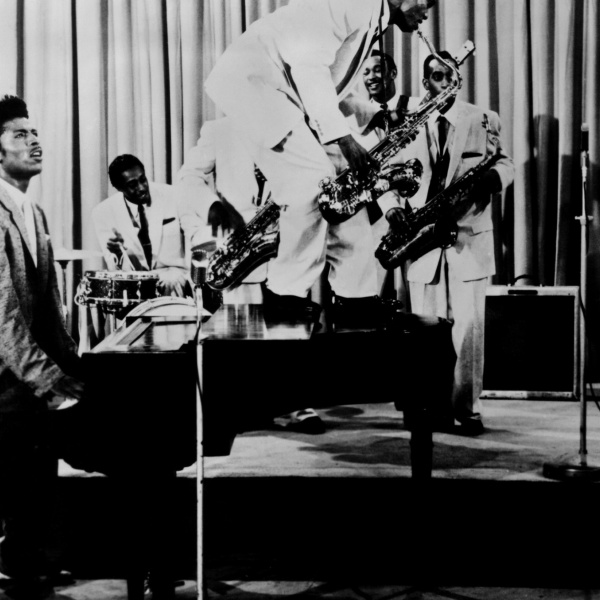
As an adaptation of “Junkie” author William S. Burroughs’ second novel, “Queer” is about chemical addictions, yes. But it’s even more about being so addicted to a person that, no matter how much you turn yourself inside out trying to get them to love you — charming them with your literary voice, lathering yourself into a stupor on drugs, or even going to the far reaches of a jungle — they will never love you the way you want them to, and even telepathy couldn’t help explain to you why.
Luca Guadagnino’s profound and kaleidoscopic new film begins in a post-World War II Mexico City of the mind and ends in the Ecuadorian rainforest on an ayahuasca trip that’s part Apichatpong Weerasethakul, part “2001: A Space Odyssey,” but fully the “Call Me By Your Name” director’s own strange, sui generis creation. All sweaty, raw, self-lacerating, and debauched, William Lee (Daniel Craig) is an ex-pat who wanders from bar to bar in the Mexican capital in the 1940s, here recreated at Rome’s Cinecittà Studios with the rigorous detail, scope and strangeness of the warehouse mindscape in Charlie Kaufman’s “Synecdoche, New York.”
An autobiographical stand-in for Burroughs himself, whose novel “Queer” is primarily an internal monologue built on depraved thoughts and ricocheting impressions, Lee is a junkie in love with the detached, golden-haired Eugene Allerton (Drew Starkey). This elusive, reedy Navyman who will change Lee’s life never unequivocally says he’s queer or straight, but that doesn’t deter Lee from a hopeless, wobbly pursuit lubed up by a cascade of booze and opiates, from gay dives to the bowels of the South American wilds.
“How can a man who sees and feels be other than sad?” Burroughs asked himself in his last diary entry before his death of a heart attack at age 83. That he made it that long is a wonder, but those words prove telling for this extraordinary film: Even more than “Call Me By Your Name,” “Queer” pulses with the melancholy that comes with seeing and feeling too much, of a mind-altering love that reconfigures your entire sense of selfhood.
Beginning with Sinead O’Connor’s a cappella cover of Nirvana’s “All Apologies” across the opening titles before the soundtrack resets with an actual Nirvana song, “Come as You Are,” Guadagnino’s film takes us into a fictional subterranean Mexico City where being queer is “a curse” (Lee’s words) and a liberation. Where, as “All Apologies” says, “everyone is gay.” What else could they be? Lee’s insular social orbit includes drinking buddy Frank (an at-first unrecognizable Jason Schwartzman, with a beard, weight gain, and beatnik flamboyance that evokes Allen Ginsberg) and the various rentboys and one-night-only lovers Lee takes to a seedy motel or back to his own hole of an apartment, where more booze and a spoon and needle are seemingly the only offerings. One includes pop singer/songwriter Omar Apollo, in full-frontal nudity, in a sad sexual encounter that ends only in semen strewn on a hand towel and Lee alone again.
Also discharged is Eugene, from the Navy, appearing as if an apparition into town in crisply tailored clothes (Jonathan Anderson of Loewe, Guadagnino’s collaborator on “Challengers,” handles the rigorously researched period costuming) and wire-rimmed glasses. Eugene’s whole put-together look contrasts sharply with Lee’s head-to-toe disheveled appearance, committed to fully by Craig as a faded, linen-dressed bon vivant and the sort of barfly at the next seat you’d rather avoid than accept a drink from. Eugene is a fount of water in a desert, and a beautiful man whom Lee has to have. In hindsight, would Lee have drowned himself so fully in his obsession had he known the heartbreak at stake? They go to bed in two feverishly charged, sensually filmed encounters that are the most explicit gay sex scenes I can remember in any mainstream movie — if “Queer” is that at all.

That Guadagnino briefly pans out a window during both, only to cut back to the lovers to find them going at it even harder than before, could suggest the filmmaker is trolling critics of the controversially coyer sex scene in “Call Me By Your Name,” which panned to a tree outside the bedroom of an Italian villa as Timothée Chalamet and Armie Hammer started going at it. But I think that’s just Guadagnino’s playfully teasing style, often abruptly digressive in a film’s most sensual or visceral moments, only to yank us back into the primality of it all. Much like the climax of “Bones and All” that pivoted suddenly to the quiet world outside the attempted killing happening in Chalamet and Taylor Russell’s apartment before smash-cutting back into it.
Meanwhile, Eugene’s “untutored palate,” as the alcoholic Lee puts it, is impervious to Lee’s hedonistic ways. His addiction leaves Lee often paralyzingly lonely, as in a scene where he empties a needle into his arm and drifts off into space, set in a slowly zooming long take to New Order’s New Wave anthem of self-isolation, “Leave Me Alone.” And so Lee’s hungry-for-the-next-big-fix determination to locate the source of yagé (or the psychoactive beverage otherwise known as ayahuasca) could become a less lonely enterprise if he’s able to entreat Eugene to join him on the journey to South America, where “Queer” enters its hallucinatory next phase.
Where the first half is pure sensuous Guadagnino hangout yearning-romance picture, the second is the director’s most visually daring cinematic conquest yet, a detour not part of Burroughs’ book. (Here, “Challengers” screenwriter Justin Kuritzkes handles the adaptation, blowing open Burroughs’ slim novel.) Guadagnino wants not only to expand your consciousness as a moviegoer, but to cut you open and rearrange all the parts of you that see and feel things when you watch a film at all.
Eugene and Lee’s journey to South America isn’t without a brutal spell of cold-turkey hell detox on Lee’s end, as he’s overcome by the physical symptoms of a heroin withdrawal Eugene is only half-interested in catering to. It’s Lee’s unavoidable lapses of self-control that chisel away at, just a little bit more each time, whatever grand affair these two could’ve had. Once he’s cleaned up, Lee makes a pact with Eugene where the Navyman has to be “nice” to him — i.e. put out — only twice a week while on the trip. But Lee can’t help himself from trying once more to initiate intimacy, and too soon after the last time to convince Eugene it’s deserved.
In the jungle, they find a feral, off-the-grid Lesley Manville (an all-timer, here with no eyebrows and browned-out teeth) as a civilization-shirking woman conducting ayahuasca research in a remote hovel, guarded by one hell of a viper. “Queer” then descends, unfurls, explodes into a euphoric, scary, hallucinogen-upped long dark night of the soul, with an earlier omen about the ayahuasca experience being “a mirror, not a portal, and you might not like what you see,” coming true for everyone involved. But in terms of the movie’s structure and story, it is a portal that’s never again closed, even as Lee so might wish he could. And once you realize why he wanted to acquire telepathy to begin with, what he wanted to grasp by opening that portal, it’s devastating. Suddenly, it’s as if the filmmaking itself has taken the ayahuasca drug, with a body-horror-surreal, easy-metaphor-defying dance, let’s call it, between the leads, choreographed by Sol León and Paul Lightfoot. Trying to describe it in any more in words right here would suck the soul out of the whole thing. And here is a movie that will suck out your soul and your brain if you let it.

Guadagnino had surely seen John Maybury’s 1999 cult film “Love Is the Devil,” starring Derek Jacobi as Francis Bacon and Daniel Craig as his dejected criminal lover George, before casting Craig in a role unlike anything the former Bond star has done before. The actor may be almost too unbelievably jacked to play a junkie, but Craig’s brilliant performance is all inner torment he wears on the outside as a deeply lonely man doomed to an unrequited all-consuming love, funny and tragic in his inability to help himself. The handsome Starkey, in his breakout screen role after TV’s “Outer Banks,” haunts the screen as an adonis out of reach, tantalizingly inscrutable and embodying the sort of recognizable love object that may live only inside your head. Few contemporary films understand so penetratingly the self-annihilating potential of desire when it’s only half-requited. Or even when it is fully.
My reference earlier to Weerasethakul — who’s made jungle-dwelling folklore and queer magical realisms his primary instruments as a storyteller — is appropriate given Guadagnino’s reunion on “Queer” with the Thai filmmaker’s director of photography, Sayombhu Mukdeeprom. Straight from Burroughs’ own imagination, images of Lee’s translucent self recur, at turns levitating out of his own body or going transparent onscreen in a motif that highlights “Queer’s” occupation with the barrier between Lee’s obliterated human body and his searching soul, how his failure to close that gap renders connection with another soul, or another body, impossible.
Also on the Guadagnino reunion tour, composers Trent Reznor and Atticus Ross (“Challengers,” “Bones and All”) provide an ennui-oozing, unpredictably genre-hopping score that, especially in a woodwind-driven love theme recycled in moments of tenderness or almost-tenderness, suffuse “Queer” with the same sense of shapeshifting that Mukdeeprom’s camerawork and editor Marco Costa’s dream-logic editing also do. A cut to and from Eugene standing in the jungle amid the film’s uncategorizable and astonishing conclusion will hurt you. Until an epilogue leaves you even more ruined, but also alive and awake to the powers and possibilities of cinema to find humanity in even the darkest recesses of a person.
Grade: A
“Queer” world premiered at the 2024 Venice Film Festival. A24 will release the film later in 2024.
